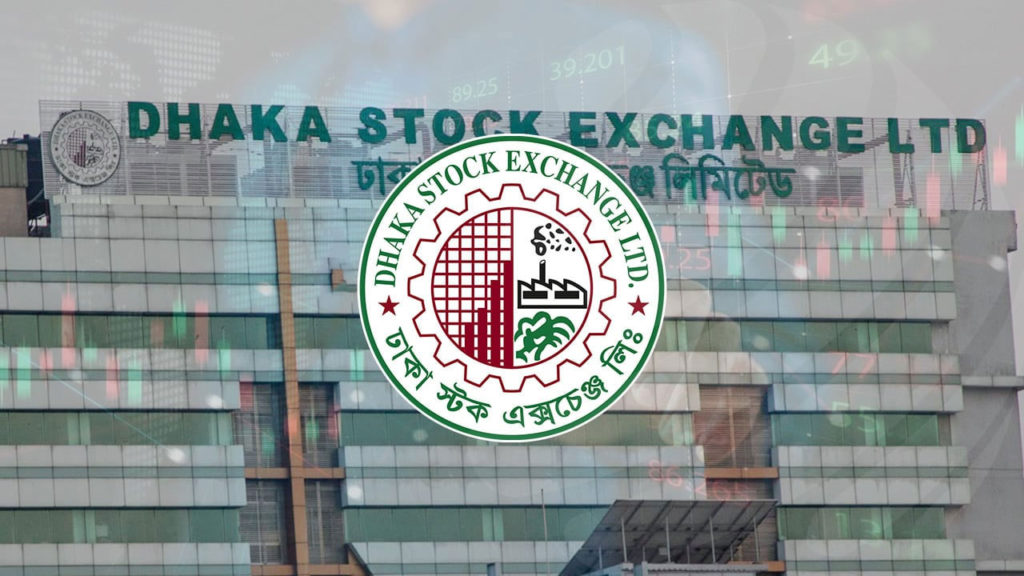Economy Desk
Bangladesh’s capital market witnessed a significant downturn last week, with the Dhaka Stock Exchange (DSE) recording steep declines across most securities. The number of shares and units that fell in price outnumbered those that rose by a factor of 21, resulting in a week-long drop of nearly 5–6 percent across all major indices. The exchange’s average daily turnover also fell by approximately 27 percent, while market capitalization declined by about BDT 16,941 crore during the week.
Market analysts attributed the slump to several negative developments. Key factors included the announcement of zero pricing for shares of five banks, new regulations on margin loans introduced by the Bangladesh Securities and Exchange Commission (BSEC), and online lockdown announcements by the banned Awami League. Analysts highlighted that the margin loan regulations and lockdown notices particularly contributed to the decline, as they reduced investor presence in brokerage houses and prompted panic selling of shares at lower prices.
During the week, a total of 383 companies, mutual funds, and corporate bonds were traded on the DSE. Of these, prices of 17 securities increased, 363 declined, and three remained unchanged. Transactions were absent in 30 securities.
As a result of the widespread declines, the DSEX, DSE’s main index, fell by 265 points or 5.34 percent, ending the week at 4,703 points, down from 4,968 points at the close of the previous week. Other indices also reflected significant losses: the DS-30 index, which tracks selected companies, dropped 89 points or 4.60 percent to 1,851 points, while the Shariah-compliant DSES index declined 62 points or 5.99 percent to 977 points.
According to data from EBL Securities, the largest contributors to the index decline were shares of Islami Bank, Beximco Pharmaceuticals, LafargeHolcim Bangladesh, Renata PLC, and BRAC Bank.
The DSE’s average daily turnover over the five trading days was BDT 35.435 billion, down from BDT 48.448 billion the previous week, representing a decrease of 26.85 percent. Market capitalization at the close of the week stood at BDT 673,975 crore, compared to BDT 690,916 crore at the previous week’s end—a decline of 2.45 percent.
Sector-wise analysis indicated that the engineering sector dominated trading, accounting for 14.14 percent of total transactions. The pharmaceuticals and chemicals sector ranked second with 13.34 percent of trades, followed by the textile sector with 9.99 percent, the banking sector with 8.73 percent, and the energy and power sector with 8.33 percent.
All sectors recorded negative returns during the week. The highest sectoral loss was in life insurance, with an 18.4 percent decline. Other notable negative returns included paper and printing (17 percent), jute (15.3 percent), mutual funds (12.87 percent), and information technology (11.42 percent).
Meanwhile, the Chittagong Stock Exchange (CSE) also experienced declines. Its overall index, CASPI, fell 3.99 percent to 13,401 points, while the CSCX index decreased 3.44 percent to 8,319 points. During the week, the CSE recorded turnover of BDT 8.036 billion, down from BDT 9.72 billion the previous week. Out of 272 companies and mutual funds traded, 29 saw price increases, 236 experienced declines, and seven remained unchanged.
The recent slump underscores ongoing volatility in Bangladesh’s capital markets, influenced by regulatory changes, market sentiment, and external announcements impacting investor confidence.


